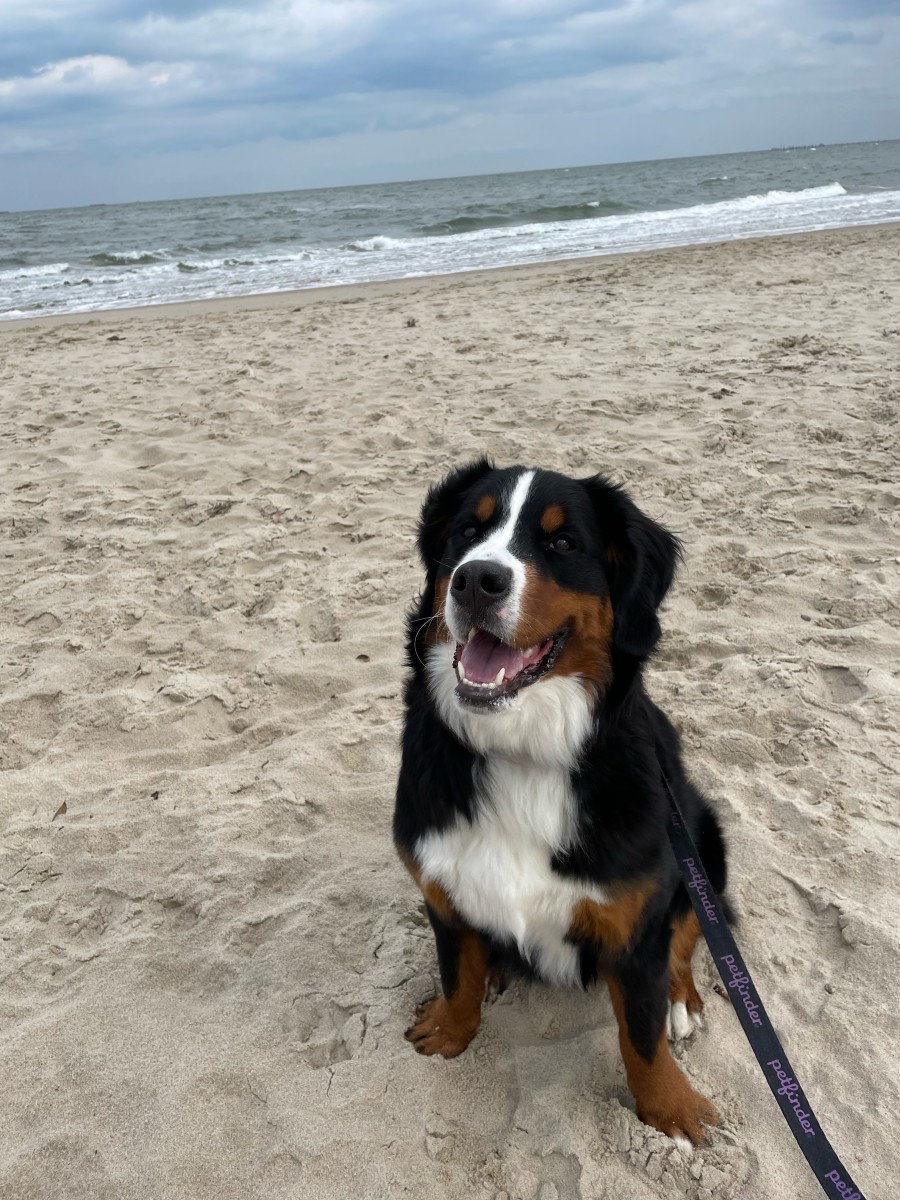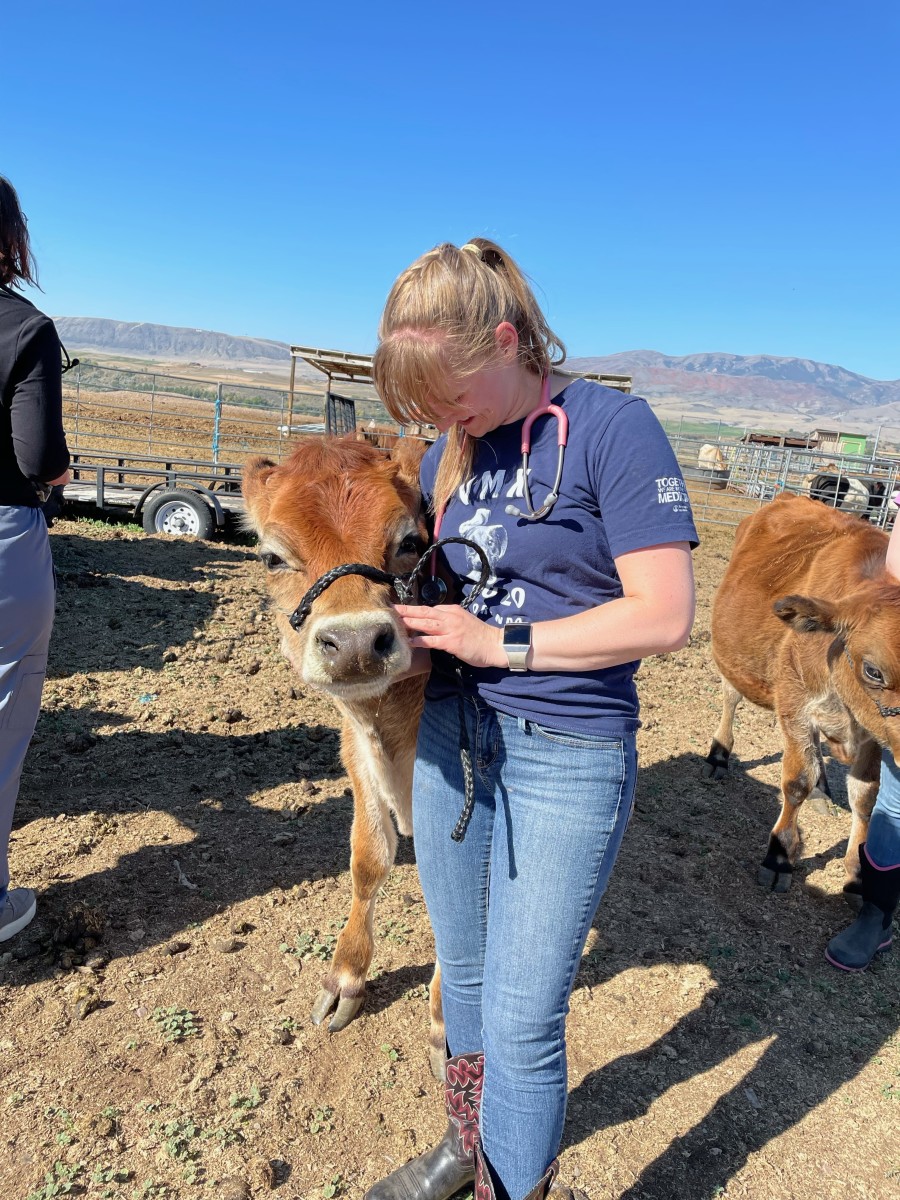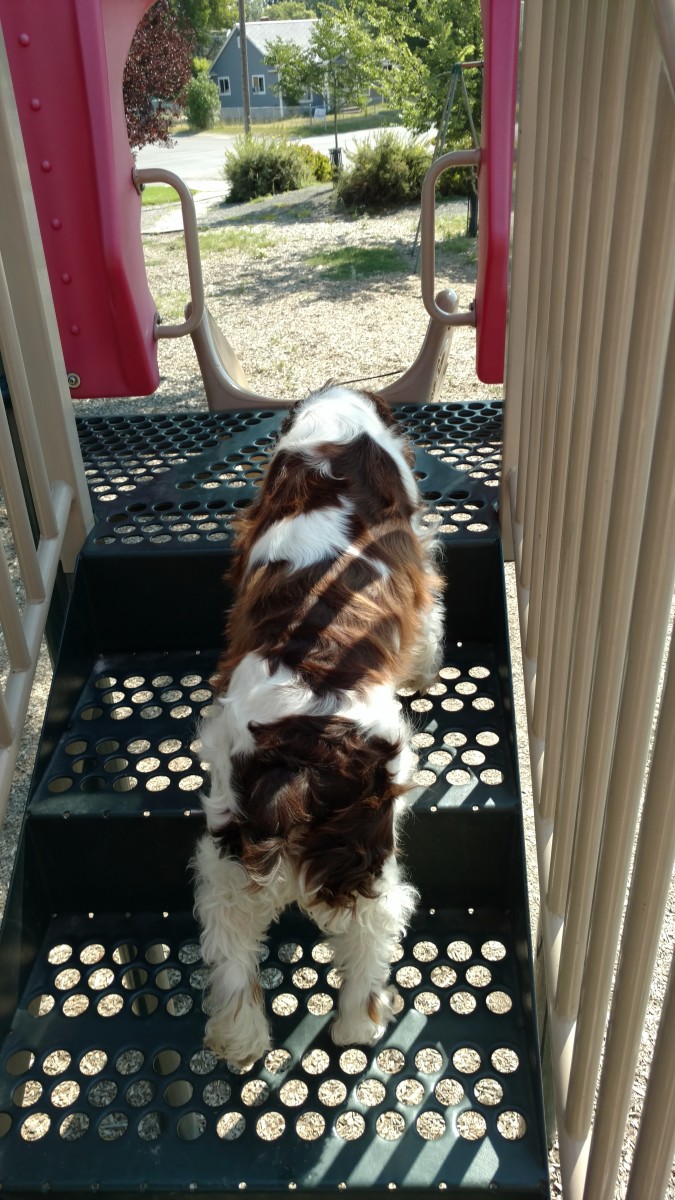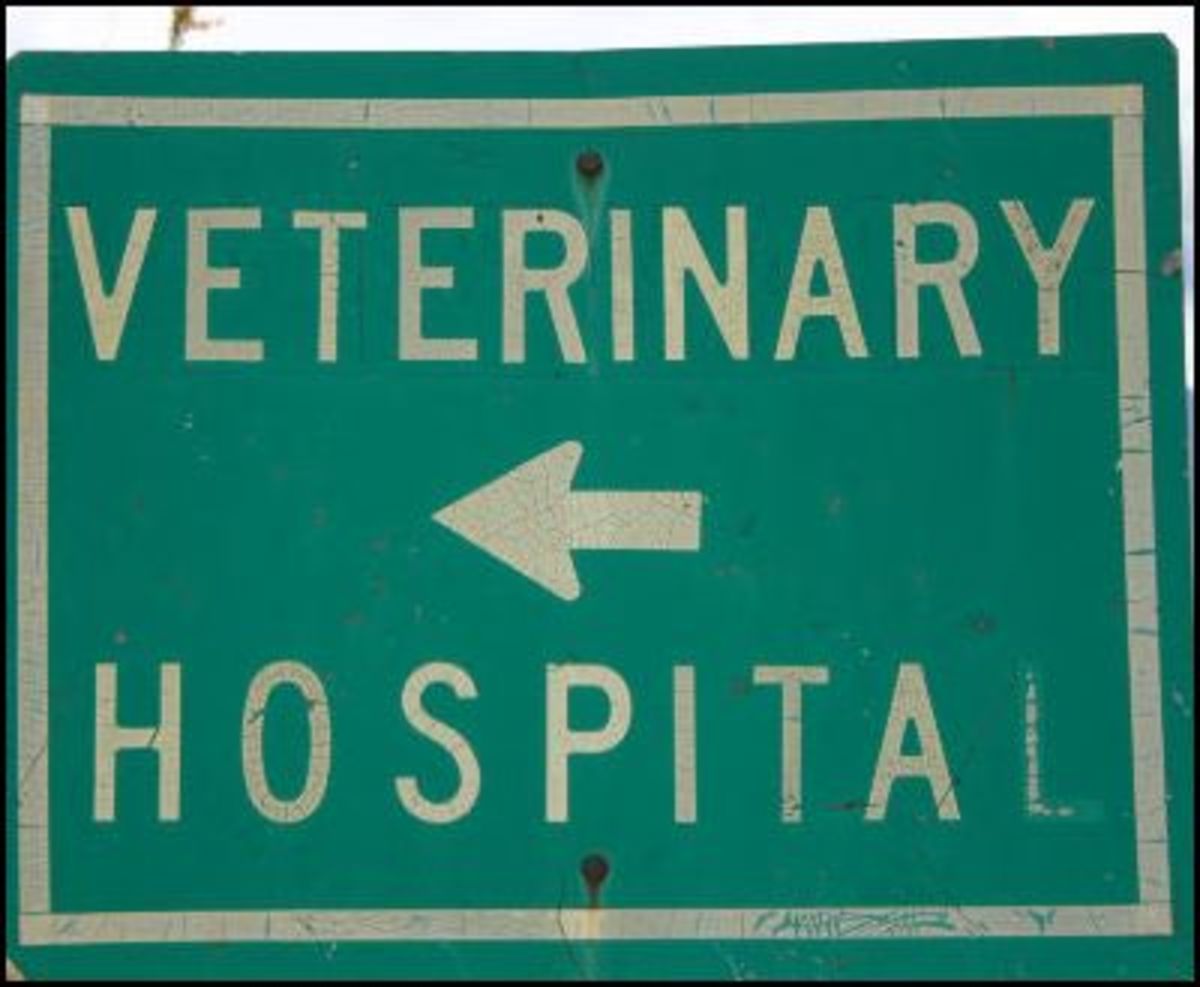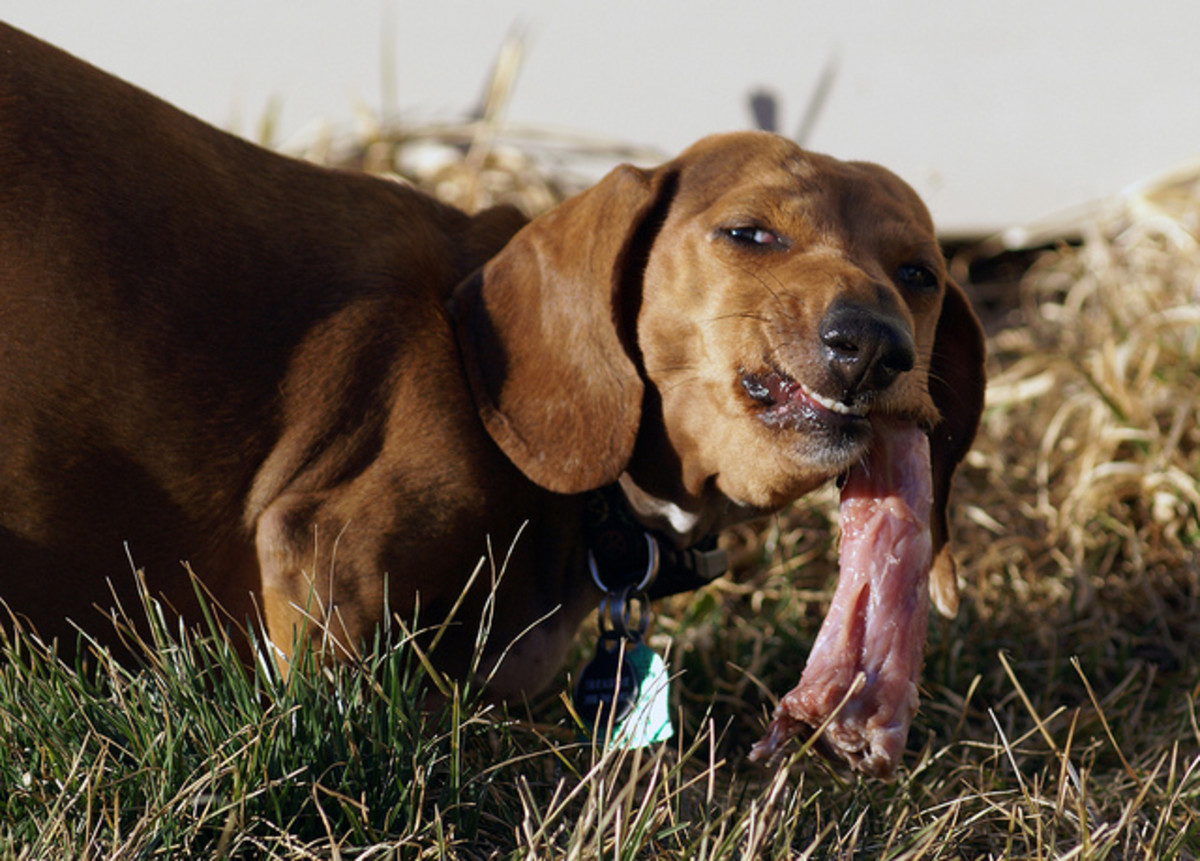Behind The Scrubs: Accounts of a Common Veterinary Technician
What Does It Take To Work In Veterinary Medicine?

Who I Am, and Why I Do What I Do
I began fielding the question when I was very young: "are you going to be a veterinarian when you grow up?" Every kid with an interest in animals gets that one. A lot of times the answer is yes, because who doesn't like the idea of working with cute doggies and kitties all day? Often, though, kids get jaded to the idea in one way or another: a different interest takes hold, or the schooling looks like it's too much work or takes too long... and then there's that whole "euthanasia" thing. But not every lover of animals loses that passion. Some - and many good-hearted, strong-willed, intelligent people - make it all the way to and through veterinary school.
So who's that other person that comes into the room, the one wearing the scrubs when you really want to ask the vet your burning pet care questions? Did they just not have the chops to get into vet school? Not smart enough, or not talented enough? What makes a person choose that path?
Put simply, some of us have seen the boss' job, and we don't want it.
I was one of those kids who got hung up on the whole euthanasia thing. But as I matured, I came to understand that sometimes it's the most merciful thing one can do. I came to peace with it (though I can freely admit I've never gotten to a point where it's easy). When I finally faced that down, I took a long hard look at veterinary medicine, and asked myself all kinds of questions: am I strong enough mentally and emotionally to handle outcomes where the patient doesn't pull through; am I strong-stomached enough to handle the copious blood and irreparable injuries and catastrophic ailments that walk in that door; am I comfortable handling animals that will almost certainly want nothing to do with me. That kind of thing.
I started off as a vet assistant. Getting my feet wet, you might say, testing the waters to see how far I wanted to take this path. And one of my first cases as an extern showed me exactly why I would never be a vet. It was a simple case of the family not being able to afford the exploratory surgery to determine the possibility of it being a fixable issue... and the necropsy showing us that it could have been. The vet did his best to figure it out, but it was either something permanent and impossible to fix, or something easy to repair. The family wasn't able to pay to find out - especially with the possibility that it might not be worth it in the end.
The vet was devastated. He'd tried to find the right diagnosis, but vets aren't Superman with x-ray vision. They have their limits. And it just was a bad situation.
After seeing that, I decided I didn't need any more ghosts following me around, and would follow orders, but never be the one to make the ultimate call.
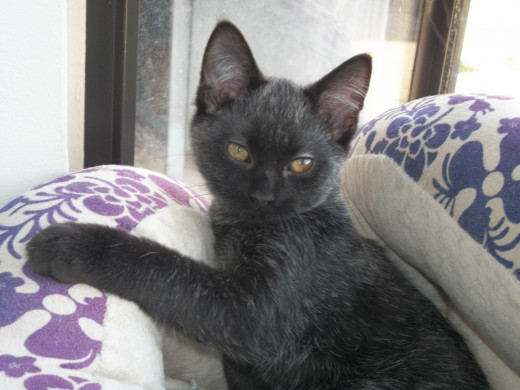
What IS A Vet Tech?
A veterinary technician (or, depending on specialization and/or education, a veterinary technologist) is the everything-else-that-needs-doing person in the office.
I put it that way because everyone knows that the veterinarian is essentially the doctor. That's not to diminish what they do; point in fact, where a doctor of human medicine must study absolutely everything about a human body - male, female, from infant to elderly - a veterinary doctor must do all that for multiple species. Which is to say, where your doctor knows everything about your physical makeup, a vet has to know everything about your dog's physical makeup... as well as your cat's, your bird's, and your python's. That's not to say all vets are experts in all animals. Many vets have specializations, be it exotics or orthopedic surgeries on mammals. But they have at least a working knowledge of animals diverse enough to have different numbers of chambers in their hearts, to say nothing of warm- or cold-blooded differences.
So while the vet is referencing drug interactions for a particular breed of dog, or checking up on the proper diagnosis for the skin issue on an indoor (versus outdoor) cat, or calculating the correct dose of pre-anesthesia for an Emerald Python with a prolapsed rectum... the vet techs are handling everything else to give the doctor breathing room to do the job they spent six years training for.
So if the vet is the doctor, does that make a vet tech a nurse? Not exactly. Most vet techs agree that we're far more than nurses. (That's not to disparage nurses - they have a whole different amount of work what with communicable diseases, blood-borne pathogens, and patients who may be obstinate and/or aggressive.) Nurses handle people, who - ostensibly - can be reasoned with.
Vet techs must handle animals ranging from a few ounces to outweighing us by half-again our weight. If we're in Large Animal Medicine, handling cows and horses, they can outweigh us by factors of ten. The smaller ones we have to be careful of breaking. The bigger ones we have to be careful not to let break us. Even the smallest ones (in fact, most OFTEN the smallest ones) can do an awful lot of damage to a vet tech and a vet. Bites, scratches, claws and teeth, even the frequent struggling patient who throws us into an exam table - all common things to try to avoid. Most animals hate going to the vet. It's our job to poke them with thermometers and needles to make them better (or keep them from getting sick), but we can't explain that to them. So they fight us. And they can really hurt us.
We're not just security and restraint: we're also phlebotomists, x-ray techs, lab technicians, receptionists, janitors (including mopping, autoclaving, wrapping surgical packs, and washing all equipment that's used), anesthesiologists, surgical assistants, and in some cases we're dental hygienists. We're the ones collecting the fecal sample, prepping it, looking at it under a microscope, and presenting the findings to the vet before entering it into the records. We prep the notes, we take the histories, and we do the cleanup. We log the vaccine information as well as draw up the vaccines and calculate dosage. We hold the animal still while we draw blood, then run the blood through the machines, make the smears, and do blood-counts manually through the microscope. If something's weird, we immediately tell the vet: not just blood or fecal matter, but urine, ear swabs, and half a dozen other lovely bodily fluids and bits.
It's not easy. But our job is to make life easier on the vet, so the vet can concentrate on providing the best care to the patient and communicating with the client.
Despite all that, it's hilarious how many time we'll ask clients questions about their pets and get totally different answers than what they tell the vet. People seem to suddenly remember things with vets.
Pet People
What Kind of Pet Do You Have?
The Purpose Of This Page
So what's the point of all this?
I hope to accomplish a few things writing here. One, to help educate people on pet care, let you know what goes into pet care and why, and dispel myths about what veterinary medicine is all about. Two, to give some account of what life is like as a vet tech: my experiences, daily struggles, and challenges. And three, to help bridge the gap between client and pet care providers. Point in fact, I'm hoping to get suggestions or questions about particular topics of interest in case anyone wants to further understand how best to care for their fuzzy (or feathered, or scaly) friends.
I can't promise this page will be fun, since there will be some hard and occasionally gross stuff. There always is. But there's also hilarity, humor, and success. I can promise I will be honest, and I will always be as accurate as I can, though I will be changing names to protect privacy.
Welcome to what it's like to wear the scrubs.

